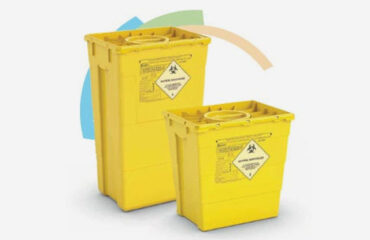8 Easy Facts About Reclaim Waste Explained
8 Easy Facts About Reclaim Waste Explained
Blog Article
The Best Guide To Reclaim Waste
Table of ContentsThe Ultimate Guide To Reclaim WasteUnknown Facts About Reclaim WasteThe Buzz on Reclaim WasteThe Best Strategy To Use For Reclaim WasteAll About Reclaim Waste
Explore the types, events, and kinds of liquid waste. Domestic sewage waste describes the waste and products from a domestic sewage-disposal tank. This type of waste is developed by human beings in residences, institutions, and other buildings. This only consists of sewage-disposal tanks that have a drain area. The correct monitoring and disposal of domestic sewage waste need fluid waste to be moved to a sewer treatment plant where the proper methods and devices are used to purify and deal with waste.
Commercial waste frequently includes potential hazards, such as combustible materials or a combination of fluid and solid waste items, and requires an advanced and comprehensive disposal procedure. The disposal of industrial waste typically entails the filtration of waste before transport to guarantee risk-free and correct disposal. Hazardous waste is created from results and runoff of industrial procedures and production.
This type of waste can not make use of the same sewage administration transport or processes as septic or business fluids. The commercial waste management process needs the assessment and screening of fluid waste before it undergoes the disposal procedure (liquid waste removal melbourne). Runoff waste is the fluid waste that comes from drainage and excess stormwater in highly inhabited areas or cities
Runoff waste can cause contamination and flooding if not taken care of effectively. Discover more about drain cleaning and waste administration. Ensuring appropriate waste administration can stop disasters and lower environmental harm. Both individuals in household settings and experts in commercial or production sectors can profit from comprehending the procedures and laws of fluid waste administration.
Some Of Reclaim Waste
Call PROS Services today to discover our waste monitoring and disposal solutions and the correct methods to take care of the liquid waste you create.
(https://leonaube33101.wixsite.com/reclaim-waste/post/effective-liquid-waste-removal-and-disposal-everything-you-need-to-know)This supposed 'wastewater' is not just an essential source but, after therapy, will certainly be released to our land, waterways or the sea. Utilized water from toilets, showers, baths, kitchen sinks, washings and commercial processes is recognized as wastewater.

water made use of to cool down equipment or clean plant and equipment). Stormwater, a form of wastewater, is runoff that streams from farming and city locations such as roofings, parks, gardens, roadways, paths and gutters right into stormwater drains, after rainfall. Stormwater moves unattended straight to local creeks or rivers, eventually reaching the sea.
The Definitive Guide to Reclaim Waste
In Queensland, most wastewater is treated at sewer treatment plants. Wastewater is delivered from residential or industrial websites with a system of sewers and pump terminals, referred to as sewage reticulation, to a sewage treatment plant. Regional governments construct, preserve and run most sewer therapy plants. Operators are certified under the Environmental Management Act 1994 to discharge treated wastewater at an acceptable environmental requirement into rivers.
The Department of Natural Resources encourages neighborhood federal governments about managing, operating get more and maintaining sewage systems and therapy plants. In unsewered locations, city governments might need owners to mount specific or household sewage therapy systems to treat domestic wastewater from commodes, kitchen areas, washrooms and washings. The Division of Natural Resources authorises making use of house systems when they are shown to be efficient.
A lot of stormwater gets no therapy. In some new class, therapy of some stormwater to remove trash, sand and gravel has started using gross contaminant catches. Wastewater therapy happens in four stages: Eliminates strong issue. Larger solids, such as plastics and other things incorrectly released to sewers, are removed when wastewater is passed through displays.
Wastewater after that streams right into large containers where solids work out and are gotten rid of as sludge. Oil and residue are skimmed from the surface. Utilizes little living microorganisms referred to as micro-organisms to break down and eliminate staying liquified wastes and fine bits. Micro-organisms and wastes are included in the sludge. Gets rid of nitrogen and phosphorus nutrients that can trigger algal blooms in our rivers and threaten water life.
Reclaim Waste for Dummies
Nutrient elimination is not available at all sewer therapy plants because it needs pricey specialised equipment. It is becoming a lot more usual in Queensland. Clear fluid effluent generated after therapy may still contain disease-causing micro-organisms. If this effluent is released into rivers such as rivers or the sea, the micro-organisms will at some point die out.

The majority of wastewater moves right into the sewerage system. Under the Act, neighborhood governments administer authorizations and licences for eco pertinent activities (Periods) including wastewater launches that could have a regional impact.
The 20-Second Trick For Reclaim Waste
Tracking offers accurate info about water quality and can confirm that licence problems are being fulfilled. The information gotten via tracking gives the basis for making water high quality decisions.
Report this page